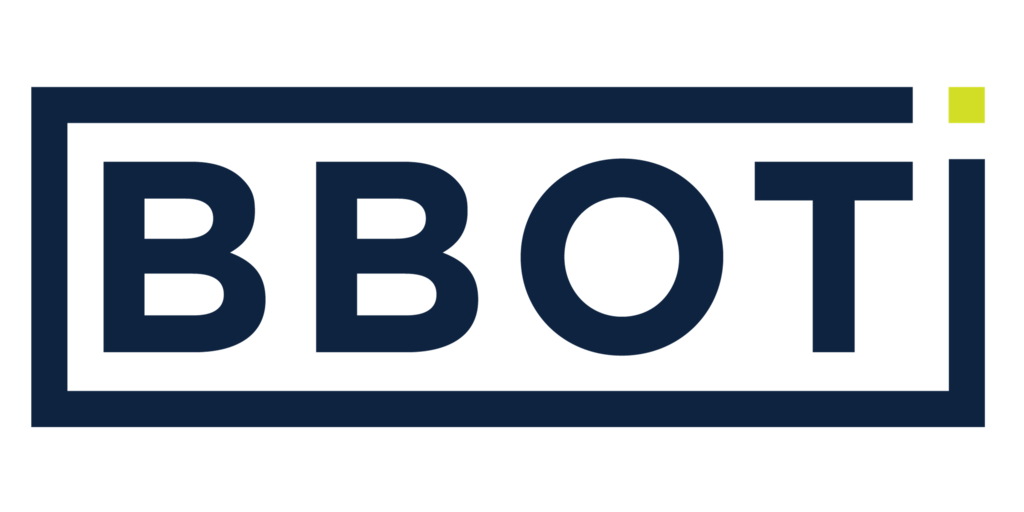- Data demonstrates BBO-8520 binds directly to both the “ON” and “OFF” states of KRASG12C, leading to rapid and complete inhibition of KRASG12C activity
- In murine models, BBO-8520 treatment results in greater potency, deeper responses, and slowed development of resistance compared to approved, “OFF” only KRASG12C inhibitors
- BBO-8520 is currently being evaluated in a Phase 1 study of KRASG12C NSCLC patients pre-treated with first generation KRASG12C “OFF” inhibitors or with no prior KRASG12C targeted therapy experience
SOUTH SAN FRANCISCO, Calif.--(BUSINESS WIRE)--TheRas, Inc. d/b/a BridgeBio Oncology Therapeutics (“BBOT” or the “Company”), a clinical-stage biopharmaceutical company focused on RAS-pathway malignancies, today announced the publication of preclinical data supporting the hypothesis that targeting both “ON” and “OFF” forms of KRASG12C results in greater potency, deeper responses, and slowed development of resistance leading to significant benefits over “OFF” only KRASG12C inhibitors approved in non-small cell lung cancer (NSCLC). The publication, titled “Discovery of BBO-8520, a first-in-class direct and covalent dual inhibitor of GTP-bound (ON) and GDP-bound (OFF) KRASG12C” was published in the peer-reviewed journal Cancer Discovery, a journal of the American Association for Cancer Research.


Current KRASG12C inhibitors work by binding to the inactive guanosine diphosphate (GDP)-bound “OFF” form of the protein, preventing its oncogenic activation. However, they do not directly target or inhibit the active guanosine triphosphate (GTP)-bound “ON” form. This limitation leaves KRASG12C “ON” unaddressed, leading to adaptive resistance characterized by increased expression and activity of the active KRASG12C “ON” state. The data in this manuscript demonstrate that BBO-8520, a first-in-class direct dual inhibitor, directly binds to both the “ON” and “OFF” states of KRASG12C in the Switch-II/Helix3 pocket. There, it covalently modifies the target cysteine to disable effector binding to the “ON” state of KRASG12C. In vivo, BBO-8520 demonstrates rapid target engagement and inhibition of downstream signaling, resulting in durable tumor regression in multiple tumor models, including those resistant to KRASG12C “OFF” only inhibitors.
“The aspiration to design a first-in-class, direct, dual inhibitor of the GTP-bound 'ON' and GDP-bound 'OFF' forms of KRASG12C has been achieved,” said Pedro Beltran, PhD, Chief Scientific Officer of BBOT. “BBO-8520 is a dual inhibitor of KRASG12C that provides optimal target coverage with exquisite potency, overcoming key deficiencies of 'OFF' only inhibitors, and represents a novel mechanism of action because it is the only direct inhibitor that actually blocks effector binding. Preclinical data shows that this novel mechanism delays the emergence of adaptive resistance seen with 'OFF' only inhibitors in the clinic. The potential of this approach holds significant promise for delivering enhanced clinical outcomes in patients with NSCLC.”
“Using nuclear magnetic resonance (NMR) and X-ray crystallography, as well as biochemical and cell-based assays, we’ve been able to decipher the mechanism of action of this potent dual inhibitor,” said lead author Anna Maciag, PhD, Principal Scientist at Frederick National Laboratory for Cancer Research (FNLCR). “Our ability to apply the multitude of high throughput screens and assays available at FNLCR allowed for quick structure activity relationship (SAR) determination and progress.”
Resistance to KRASG12C “OFF” inhibitors primarily arises from increased KRASG12C activity in its “ON” state. This can occur through mutant allele amplification or activation of receptor tyrosine kinases (RTKs) by growth factors. Newly synthesized KRAS is likely to bind GTP, as intracellular GTP concentrations are roughly ten times higher than GDP. As a result, upregulating the mutant protein’s transcription offers an efficient escape mechanism for cells to bypass the effects of “OFF” inhibitors. Similarly, receptor tyrosine kinase (RTK) activation can effectively overcome “OFF” only inhibitors by maintaining a high level of KRASG12C in its “ON” state. This study shows that the presence of epidermal growth factor (EGF) and hepatocyte growth factor (HGF) significantly impairs the potency of “OFF” inhibitors in vitro, while amplification of KRASG12C is also detrimental in vivo. In contrast, BBO-8520 maintains exquisite potency in the presence of growth factors, mutant allele amplification, as well as when mutations are engineered to maintain KRASG12C in the “ON” form.
BBO-8520 is currently being evaluated in a Phase 1 study (NCT06343402) of KRASG12C NSCLC patients pre-treated with first generation KRASG12C “OFF” inhibitors or with no prior KRASG12C targeted therapy experience. The discovery of BBO-8520 was the result of a collaboration between the National Cancer Institute RAS Initiative at Frederick National Laboratory for Cancer Research, Lawrence Livermore National Laboratory, and BBOT.
About TheRas, Inc. d/b/a BridgeBio Oncology Therapeutics (BBOT)
BridgeBio Oncology Therapeutics (BBOT) is a clinical-stage biopharmaceutical company advancing a next generation pipeline of novel small molecule therapeutics targeting RAS and PI3K malignancies. Initially formed as a subsidiary of BridgeBio, BBOT completed a $200M private financing with external investors in 2024 with the goal of improving outcomes for patients with cancers driven by the two most prevalent oncogenes in human tumors. For more information visit bridgebiooncology.com.
Contacts
BridgeBio Oncology Therapeutics (BBOT) Contact:
Idan Elmelech
Senior Vice President, Strategy & Business Development
Contact@bridgebiooncology.com
(650) 405-7021



